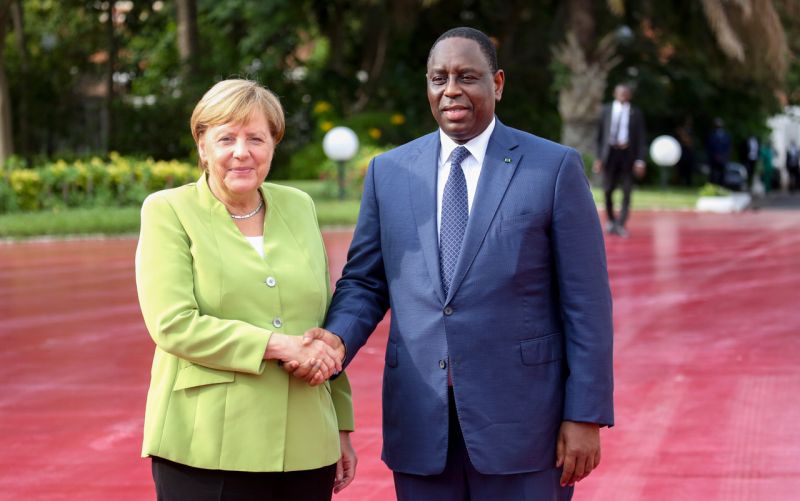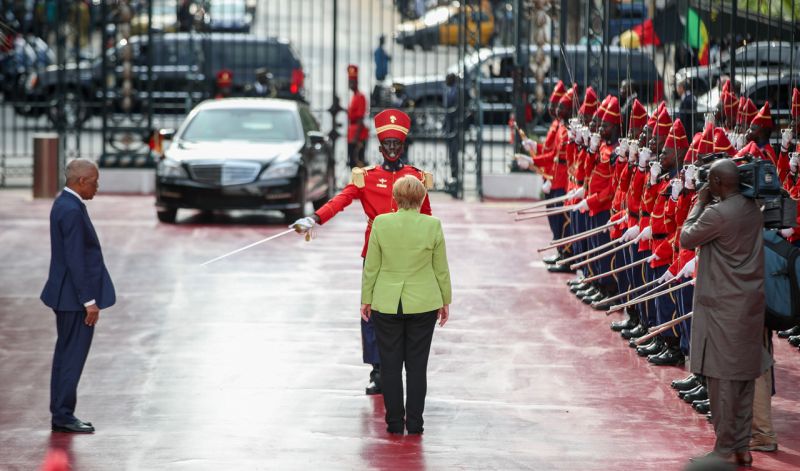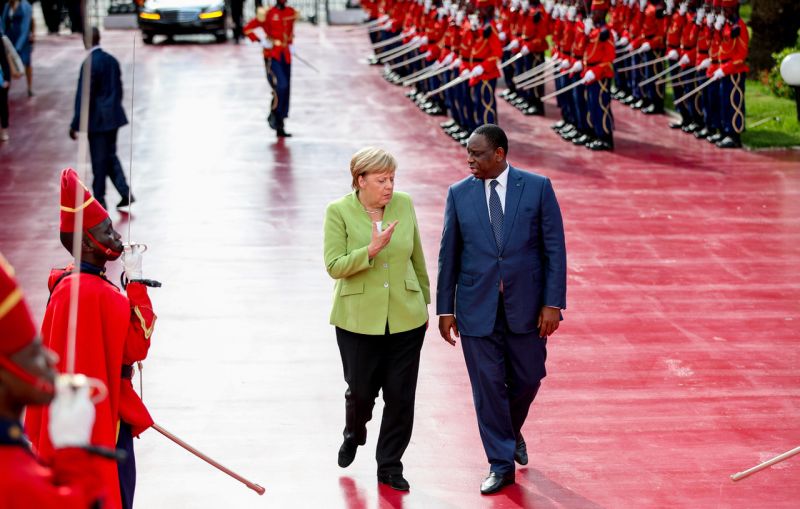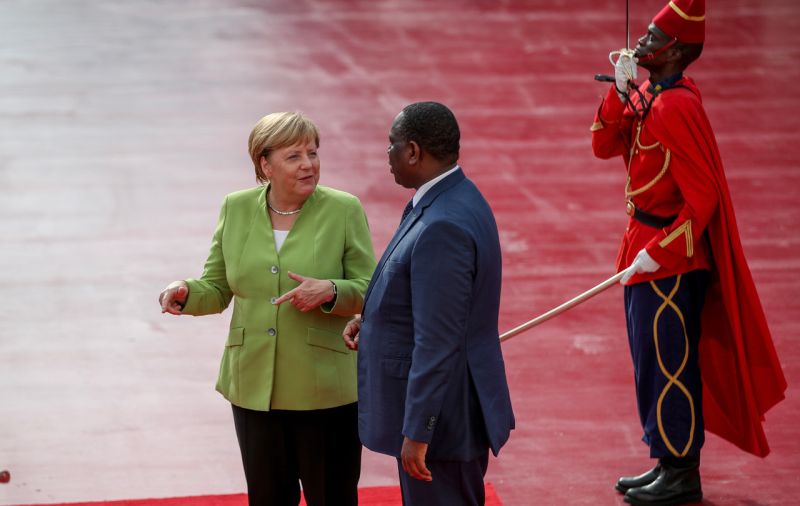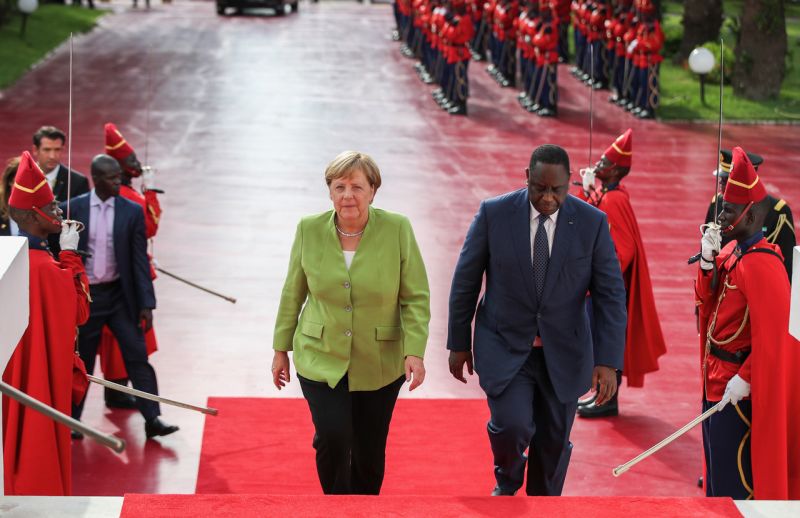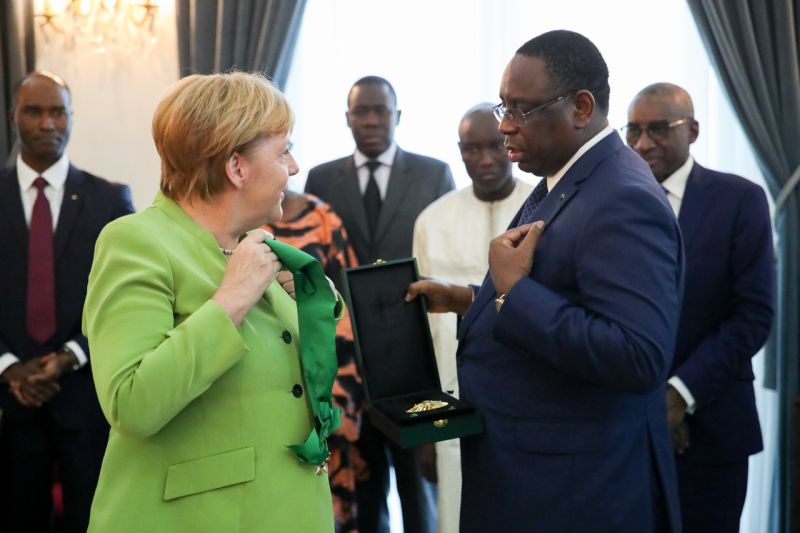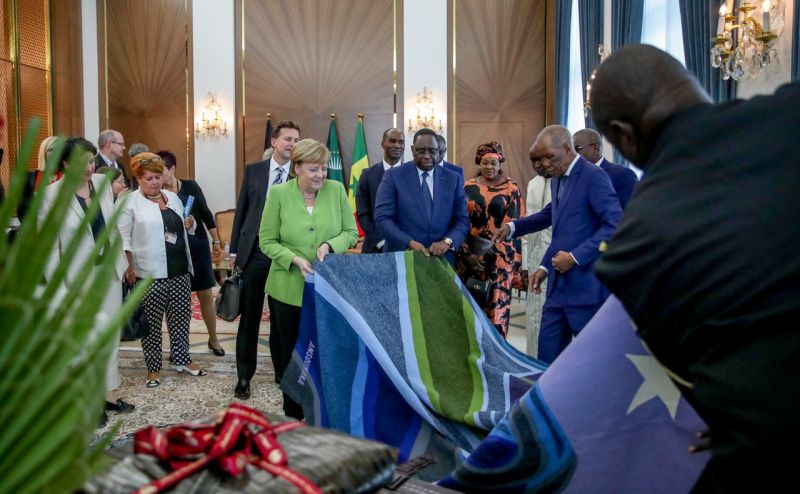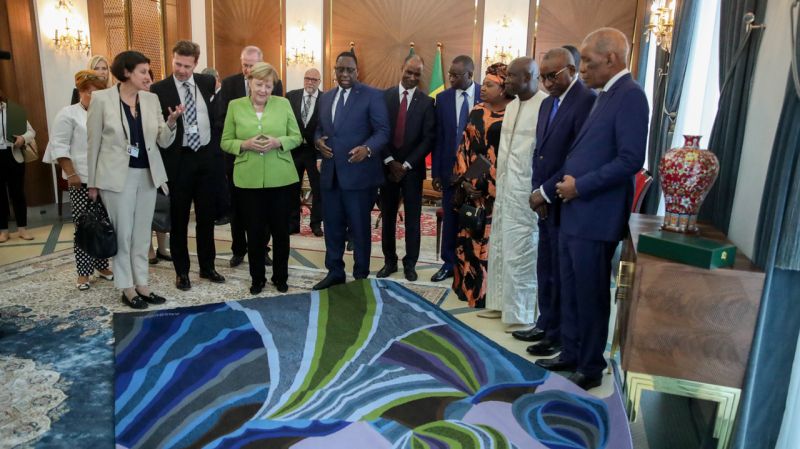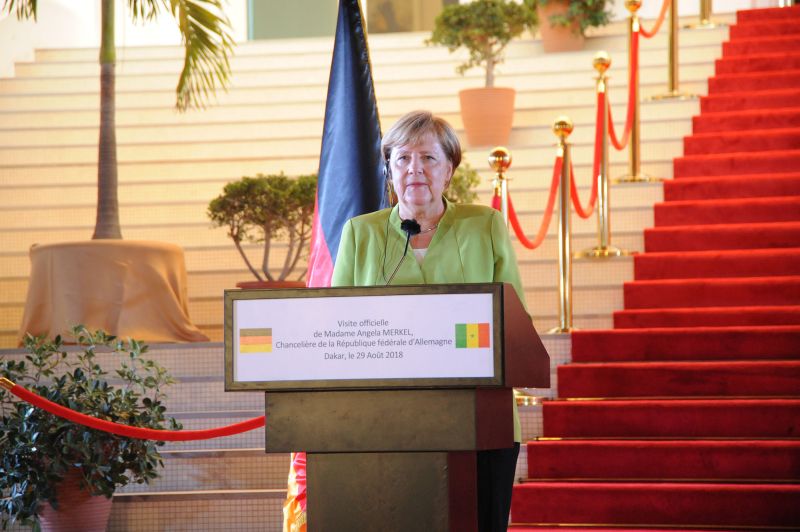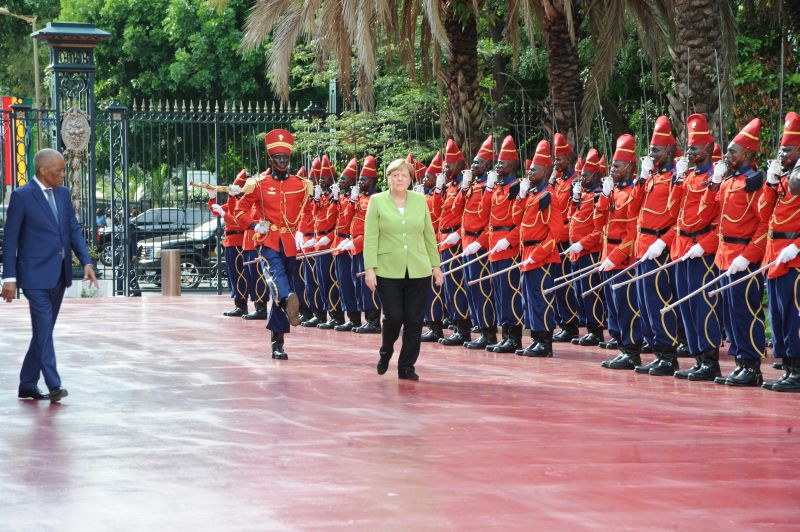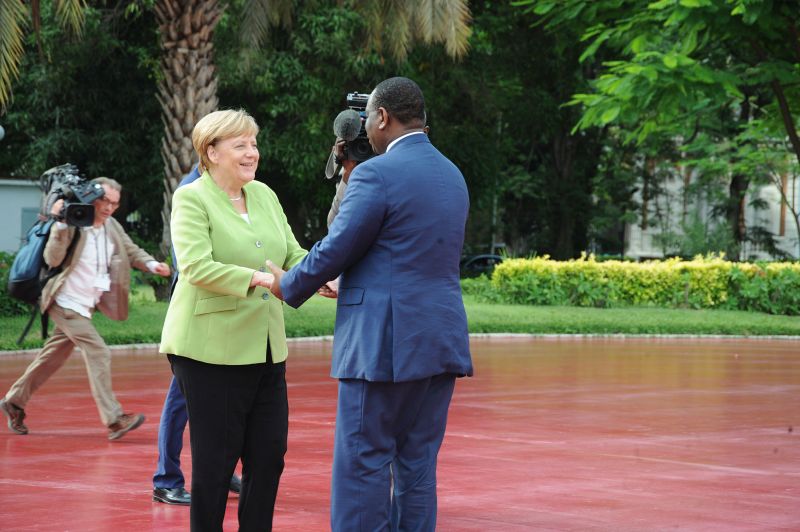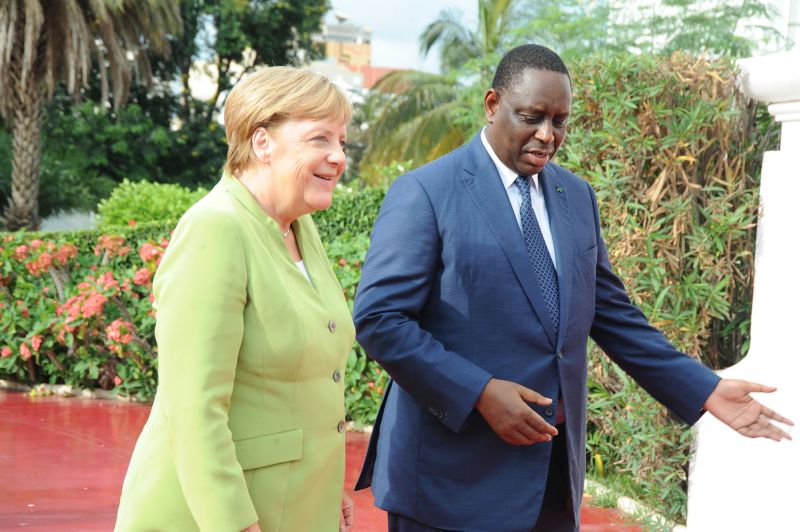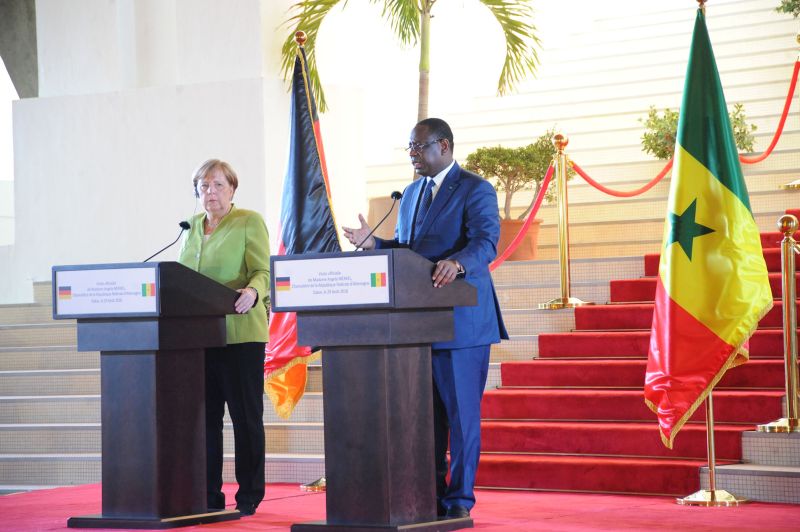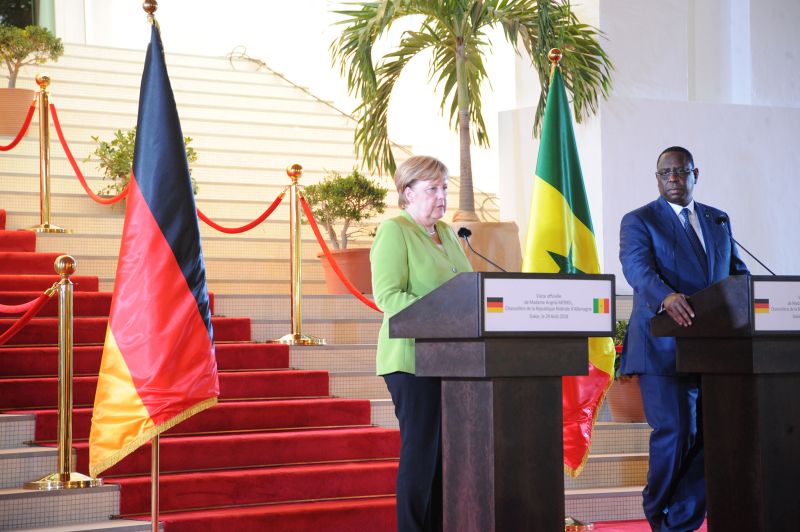Interview with Dr. Maria Flachsbarth, Parliamentary State Secretary at the Federal Ministry for Economic Cooperation and Development (BMZ), Berlin
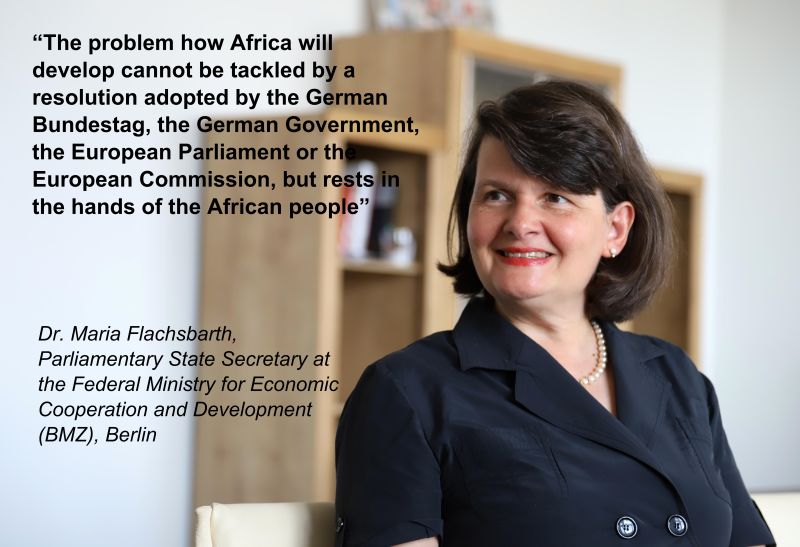
Prior to the first travel of German Chancellor Angela Merkel to Senegal, Ghana and Nigeria from 29 to 31 August 2018, we had an interview with Parliamentary State Secretary Dr. Maria Flachsbarth at the Federal Ministry for Economic Cooperation and Development, BMZ, in Berlin on 15 August 2018.
The Minister stated in his speech of 21 March: "We will implement standards for international supply chains, from the cotton field to the hanger." That is an ambitious logistic challenge.
PStS‘in Flachsbarth: We approached this subject within the scope of the textile alliance. This very week, member companies of the textile alliance for the first time submitted a binding catalogue of measures, which every member made its priority and said "this is something we want to advance until next year". What is concerned here are social standards like the issue of fair wages, of eliminating child labour and regulating working hours. But ecological standards are likewise concerned. 160 chemical products were identified, which shall gradually be removed from textile production. But we must also deal with sustainable water management and further challenges. These standards are binding and after one year, at the latest, the members must report on their progress. We therefore regard this project as a transparent and ambitious process. Until 2019, we will introduce a "green button" into the market as an umbrella seal for already existing seals.
Do consumers come to terms with this launch? There are so many seals already.
PStS‘in Flachsbarth: This is exactly the problem we wish to tackle with the green button. We want the green button to become a widely known and reliable symbol for fair and sustainable clothing. When you buy clothing items with the green button, you can be sure that the German state guarantees that production took place under acceptable conditions in socio-ecological terms. External experts will then assess whether the standards have been observed.
Is it indeed enough, if Germany is the only country taking care of this project? Actually, the entire European Union should deal with this topic.
PStS‘in Flachsbarth: Exactly. But Germany is worldwide the second largest importer of textiles. This is why we are an important international player. We will therefore get international attention, when we place emphasis on such market standard. As you know, the European Parliament will be newly elected in 2019, and it would thus be a waste of time not to act now, but rather to wait for the others. In our approach we take the entrepreneurial due diligence as a benchmark, as agreed under international treaties with the OECD. We move in the right direction as international trendsetter by showing that the system can work.
Now let us focus on West Africa! The German Chancellor will visit Senegal, Ghana and Nigeria from 29 to 31 August 2018. Will you join her!
PStS‘in Flachsbarth: No! But the German Chancellor will be accompanied by our Development Minister Dr. Gerd Müller in Ghana, who will previously also visit six further countries East African countries and South Africa.
Germany has already entered into bilateral reform partnerships with the countries Côte d’Ivoire, Ghana and Tunisia. Will a similar partnership agreement also be signed with Senegal on 29 August?
PStS‘in Flachsbarth: I certainly do not rule this out. We actually look confidently at Senegal, as we recognize an exceptionally good development in Senegal, which from our point of view is trendsetting. This matter will certainly be addressed during the German Chancellor's travel.
You give a diplomatic answer!
PStS‘in Flachsbarth: Unfortunately I cannot predict today what the German Chancellor and the Development Minister will get off the ground in Dakar.
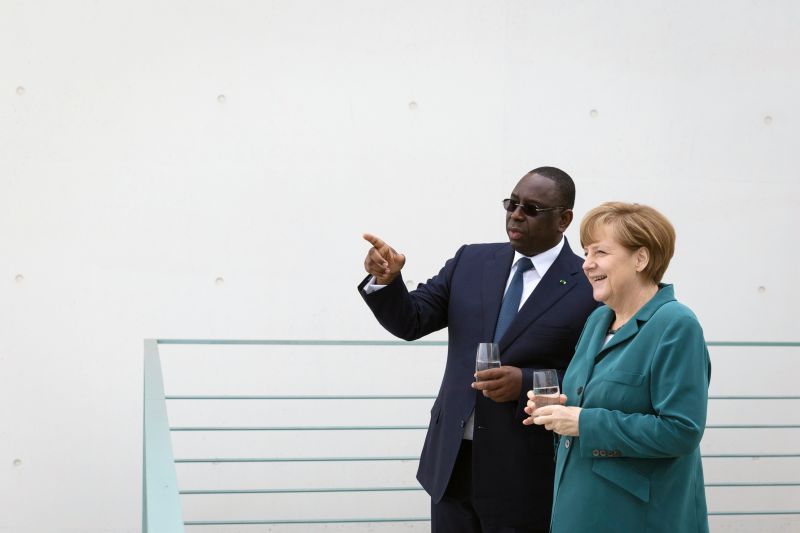 Chancellor Angela Merkel with Senegal's President Macky Sall
Chancellor Angela Merkel with Senegal's President Macky Sall
Unfortunately, however, the German Chancellor will according to both the German and the West African press fly to West Africa, in order to hold talks about refugees there. Is there really no other topic that West Africa and Germany have in common?
PStS‘in Flachsbarth: The talks will be about development cooperation. In our Ministry we deal with "cooperation and development" as well established terms on a sustainable basis. When we see that Africa is an incredibly young continent that young people there search for their personal and economic development just like our people in Germany, then we must jointly make attempts to offer assistance to the African countries, so as to promote regional development providing young people with these chances and opportunities. We base our policy on this philosophy.
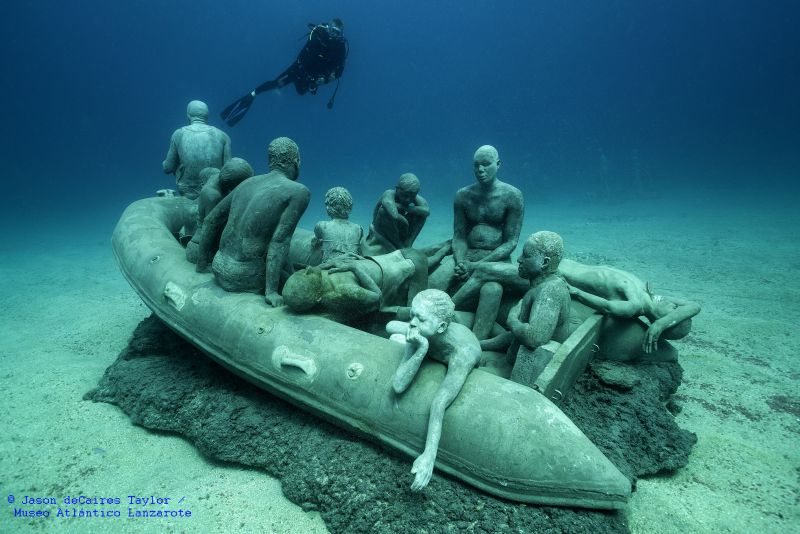 The raft of Lampedusa « Underwater museum created by Jason deCaires Taylor in Lanzarote/Spain on Africans victims of a sinking raft »
The raft of Lampedusa « Underwater museum created by Jason deCaires Taylor in Lanzarote/Spain on Africans victims of a sinking raft »
When the former German Chancellor Helmut Kohl for the first time travelled to Africa in 1988, I interviewed your predecessor Dr. Volkmar Köhler in April 1988 for the business news magazine "Wirtschaftswoche". He told me the same thing 30 years ago. How can you explain the fact that no solution has yet been found by the BMZ?
PStS‘in Flachsbarth: The problem how Africa will develop cannot be tackled by a resolution adopted by the German Bundestag, the German Government, the European Parliament or the European Commission, but rests in the hands of the African people. Who do we think we are, feeling that we can tell the Africans what they should do? We can offer assistance and help, but in the end the decision-making process is up to the Africans. We therefore welcome the initiative of the African Union, which is committed to the Agenda 2063, and very clearly proclaims its own key objectives. We will measure our African partners against these goals.
But in fact we talk about around 50 countries, which are utmost different, like for example Germany and Romania. Not all of them will be able to accomplish the Agenda.
PStS‘in Flachsbarth: I very much welcome the fact that, within the African Union, 44 out of 54 African countries came out in favour of forming uniform economic zones and expanding the intra-African trade, at present accounting for 18% of the goods exchange. In Europe, the percentage is 60 to 70%, as we realized that every industry can create higher added value. So you can realize that cooperation is imperative. When you come to our Ministry and appeal for more economic support, you are right. However, cooperation is required for that purpose. We must have governments in Africa placing the focus of their work on common welfare.
You speak about African governments and we advocate the cooperation between German and African medium-sized enterprises.
PStS‘in Flachsbarth: This again is part of our main concerns. However, framework conditions encouraging the German and European enterprises to invest are likewise necessary. Within the next few days, when a meeting is held at the Hannover Chamber of Industry and Commerce, I will use this opportunity to refer to the African market. But of course these enterprises continually ask whether they can be sure to get back what they invested there. This particularly applies to those medium-sized enterprises which are the backbone of the German economy and safeguard 80% of our jobs. In this spirit we started the Compact with Africa in 2017 during our G20 Presidency, in order to ensure that the African countries establish reasonable tax systems, land registry systems and audit divisions. These are utmost important framework conditions, apart from the rules of law and independent courts, which are urgently required for initiating a sustainable economic development. Back in the eighties, these parameters might have escaped our targeted notice, which we keep in mind today.
Then let me suggest that you invite us to the IHK in Hannover. We are ready to show the private industry how we face cooperation in West Africa.
PStS‘in Flachsbarth: Great! I would be happy to do that. Besides, with Bernd Althusmann, Lower Saxony has an Economics Minister who headed the Konrad-Adenauer foundation in Namibia for four years, thus has a feeling for southern Africa and is highly interested in working together with Africa. I wish to have him involved, just like you and the African ambassadors deployed in Lower Saxony. You know that Volkswagen campaigns for Moving Rwanda. I therefore believe that the will is there, but the medium-sized and small enterprises tell me: Volkswagen can well put it away, when new ventures are not successful. We cannot afford that. In order to counteract these worries, we need improvements with the Hermes export cover, and as soon as possible a Development Investment Act. But we also need signals from our African partner countries, showing that they take these concerns of the German SMEs seriously and provide feedback.
Maybe you already have your sights set on some African countries!
PStS‘in Flachsbarth: Within the scope of the Marshall Plan with Africa we started to sign the so-called reform partnerships with a number of African countries, who already made efforts in terms of democracy and rule of law. The first reform partners, with whom we wish to maintain an especially intense cooperation in order to reward their efforts, include Tunisia, Ghana and Côte d’Ivoire. Likewise there are promising signals in Senegal's direction or from other countries, with whom we hope to engage in joint dialogue based on partnership, but with a clear message.
This provides a nice transition to your Ministry's initiative "Marshal Plan with Africa". We had been invited by the Development Minister Dr. Gerd Müller on 28 March 2017, when the announcement was made. On that occasion I drew his attention to an old mistake made by the German Government when posting German physicians to Afghanistan. I speak about physicians who needed both interpreters and a desert allowance, although more than 500 Afghan physicians with a German diploma are working in Germany and were not consulted.
PStS‘in Flachsbarth: I understand your comment as meaning the involvement of the African diaspora.
Exactly! We are an association with engineers from Senegal working in different German groups of companies and medium-sized enterprises. We have never been approached in such matter, and the first person attending our event (the 3rd German-Senegalese Economic Summit of 4 November 2016 in the House of Entrepreneurs in Duisburg) was Mr. Thomas Silberhorn, your predecessor in office, who meanwhile holds the position of Parliamentary State Secretary at the Ministry of Defence. For over 30 years now, we got the impression that the BMZ does not attach great importance to the African diaspora, although it might be a rich source of development cooperation.
PStS‘in Flachsbarth: The diaspora's involvement is absolutely important.
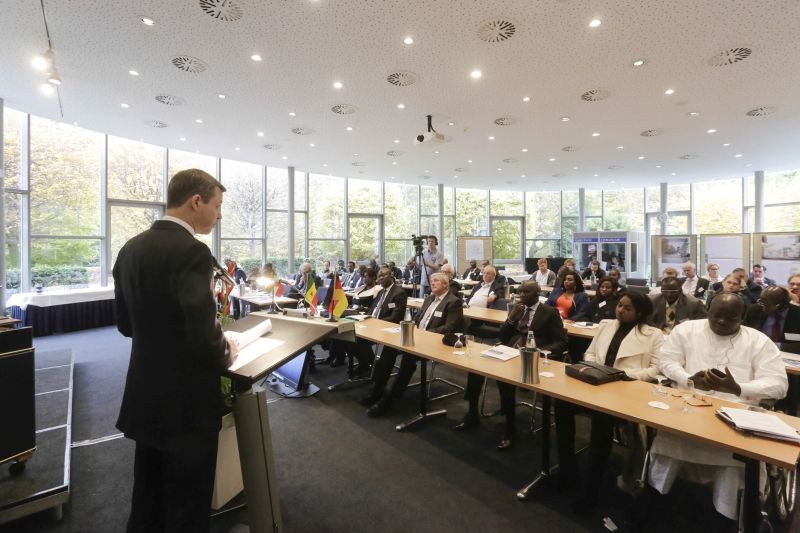 Parliamentary State Secretary Silberhorn at the German-Senegalese Economic Summit 2016
Parliamentary State Secretary Silberhorn at the German-Senegalese Economic Summit 2016
How do we get together?
PStS‘in Flachsbarth: We can work together very quickly. We are currently in the process of checking within the scope of Compact with Africa and the Marshall Plan with Africa how we can better address the industry. I therefore wish to plan that event with IHK Hannover, in order to learn about any shortcomings. From Baden-Wuerttemberg I received a very interesting study, showing what is lacking from the Economics Ministry's point of view. For instance, unclear structures both in Germany and Africa are mentioned as problems in the study: Who can I contact at the funding instruments? How can I find my way in an African country? However, the topic of corruption was always raised. These difficulties must be overcome.
Working with us, means no corruption, no interpreters, no desert allowance and no time difference, since we are in Germany. In cooperation with us, you would be able to complete small projects, being no mammoth projects such as the construction of dams.
PStS‘in Flachsbarth: Just what we want to achieve. We want the medium-sized businesses promoting the training options and the production for the African domestic market. This is still an untreated field. I therefore strongly support the initiative of the African Union (Africa 2063), aimed at promoting this market. You know yourself that a foreign trade deficit is recorded in Africa also for products which could be processed in Africa. We must combine our efforts in this field, so as to be able to give young people a perspective for finding jobs in Africa.
You are now addressed as a woman from Lower Saxony. We contacted a Deula-School from Nienburg in Lower Saxony. We are concerned here with potato production, livestock breeding and the vocational training of agricultural technicians. We came up with this idea, since the company Grimme, an agricultural machinery manufacturer from Lower Saxony, had been visiting Senegal and detected waste during potato harvesting. For lack of harvesting machines, 30% of the potatoes stay underground after hand-harvesting.
PStS‘in Flachsbarth: And this is followed by post-harvest losses due to inadequate storage, cooling, difficult transport channels, and no packaging options for farmers. As I come from the German Ministry of Agriculture, I am familiar with this topic. We therefore established "green centres" in almost 15 countries, where we try to develop locally customized innovations for agriculture: production methods, harvesting, storage, preservation and further processing. Above all, Africa is a raw material supplier. And further processing, which is linked with added value, takes place elsewhere. Take for example coffee and cocoa. What a crazy thing that further processing of these products happens elsewhere than in Africa. This is precisely what we do not want. At this point we wish to render support even more and in a different manner, as compared to our long-time practice.
What form could cooperation with the Deula-School in Senegal take in concrete terms?
PStS‘in Flachsbarth: When you are in place, you file an application with us and readily receive through my office a list of contact partners in our Ministry, or via GIZ (the German Society for International Cooperation), that can help you to get the project off the ground.
Now you are addressed as veterinarian, as we are not only interested in potatoes, but also in livestock breeding, which due to the small businesses in West Africa can only be supported through decentralized management.
PStS‘in Flachsbarth: I am also concerned about maintaining livestock in good health, as sensitive population groups, pregnant women and children need a high-in-protein nutrition in certain phases of life. This requires healthy livestock. Besides, there are diseases transmitted from livestock to humans and vice versa. A certain expertise is therefore required and we are now in the process of initiating very concrete projects like for instance combating sheep and goat plague, which continues to be a huge problem, within the scope of the special initiative "A world without hunger" with OIE (The World Organization for Animal Health) in Paris and ILRI (The International Livestock Research Institute) involved, that are familiar with the fields of agriculture and animal protection.
There is no need for us to travel as far as Paris, since for this kind of project we can stay in Hannover, namely at the EuroTier trade fair in November 2018. On that occasion we could start our project with the Deula-School in Nienburg, the Lower Saxon enterprises and the German Agricultural Society (DLG).
PStS‘in Flachsbarth: Then we should take this step. But the project must be defined more concretely, than just calling three names. I will address every entrepreneur I meet, and ask him to what extent he is involved with Africa. Besides, this also applies to Deutsche Messe AG in Hannover. We are ready to examine your project proposal in our Ministry and, if everything runs optimally, we will gladly sign the contract. However, the project must also fit to our promotion conditions. Please contact us in due course. There is no point in saying "nobody comes to us, or nobody has ever asked us". Please come to us. This is exactly what other NGOs likewise do.
You now feel addressed as a woman. Two projects for women were initiated with the Compact with Africa initiative under the German Presidency in 2017:
- #eSkills4Girls Initiative
- The Women Entrepreneurs Finance Initiative (We-Fi).
Are there other BMZ projects that are specifically addressed to women in Africa? To substantiate my question, I tell you what Jane Fonda, who also established a foundation, stated at the UNESCO Gala on 14 November 2009: "When I give my money to men in Africa, they take it and go to pubs, but when I give my money to women, they invest it for their children."
PStS‘in Flachsbarth: That is the idea repeatedly adopted by our Development Minister Dr. Gerd Müller. We also have such projects. We will send you a list on women's empowerment, which you are invited to publish.
Mrs. Parliamentary State Secretary, thank you so much for the interview.
Interview conducted by Ibrahim Guèye
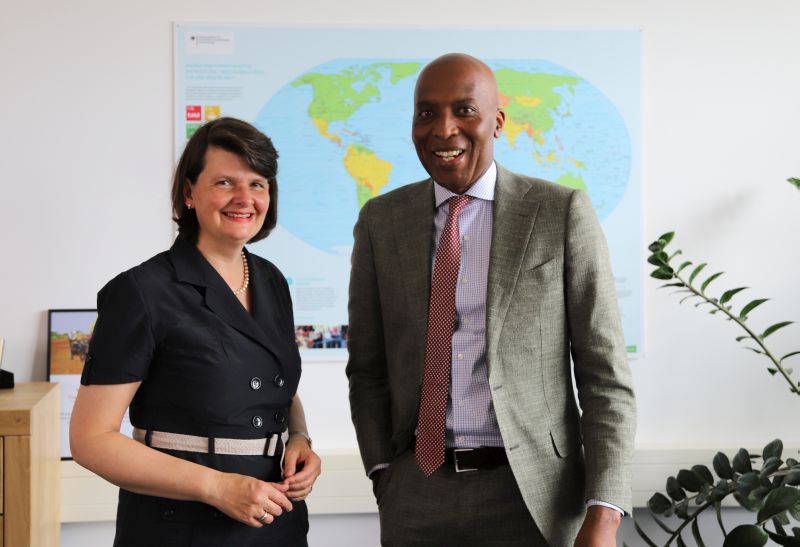 Parliamentary State Secretary Dr. Maria Flachsbarth with Ibrahim Guèye
Parliamentary State Secretary Dr. Maria Flachsbarth with Ibrahim Guèye
Fotos of Chancellor Angela Merkel's visit to Senegal on 28 August 2018
